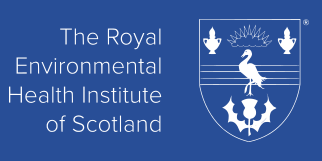The Elementary HACCP course has been independently rated on the Scottish Credit Qualifications Framework (SCQF) at Level 5 with 1 credit.

The Elementary HACCP course has been independently rated on the Scottish Credit Qualifications Framework (SCQF) at Level 5 with 1 credit.
This qualification is appropriate for all persons employed in a food manufacturing type business who need to have an understanding of HACCP. However, although designed for food manufacturing,
this course is also suitable for all food handlers; catering and retailing, to raise awareness of food safety management systems based on HACCP principles. This course is equivalent to Level 2.
HACCP And Hazard Analysis
Aim
To provide a basic understanding of what is meant by the Hazard.
Analysis and Critical Control Point (HACCP) system.
Objectives
Describe what is meant by the terms HACCP.
Describe, in general terms, the history of HACCP.
Explain the principles of hazard analysis.
Explain prerequisite programmes for HACCP
State the seven principles of HACCP 1.6 Explain the terms TACCP and VACCP
Principles Of HACCP And Their Use To Control Food Hazards
Aim
To provide a basic understanding of the principles of HACCP, and how these principles can be used by a food manufacturing business to control potential food hazards.
Objectives
Define the terms: hazard, hazard analysis, risk, food business operation, control, control point, critical control point, critical limit, monitoring, and verification.
Describe how HACCP can be used to control food hazards.
Describe how potential food hazards may be identified.
Describe how allergens must be identified and controlled.
Describe the importance of HACCP training and outline the role employees and employers have in relation to HACCP
Describe how the Critical Control Points (CCP) can be determined.
Explain how critical limits for each CCP can be established.
Describe how effective control and monitoring procedures at those critical control points can be identified and implemented.
Describe appropriate corrective action to be taken when monitoring procedures indicate a problem at a particular critical control point.
Explain how verification procedures should be used.
Describe appropriate documentation systems and the importance of them.
Practical Application Of HACCP And Hazard Analysis System
Aim
To provide an understanding of how HACCP can be used in food business operations.
Objectives
Explain the ‘12 logical steps’ to HACCP in relation to implementation within a food manufacturing business.
HACCP And Legislation
Aim
To provide a basic understanding of the national legislative requirements and the relationship to HACCP.
Objectives
Explain briefly the relationship between the Food Hygiene Regulations and the relevant EU Regulations.
Explain briefly the requirements of the Food Hygiene Regulations, EU Regulations and related Codes of Practice with regard to HACCP.
About REHIS
The Royal Environmental Health Institute of Scotland, often referred to as REHIS, was established in 1983 following the merger of the Royal Sanitary Association of Scotland (founded 1875) and the Scottish Institute of Environmental Health (founded 1973). The Institute was incorporated by Royal Charter in 2001.
The Institute is a registered Scottish charity No. SC009406.
The Institute awards the qualification which allows a person to practice as an Environmental Health Officer (EHO) in Scotland. Under the Royal Charter and Scheme of Continuing Professional Development it awards Chartered Environmental Health Officer status to eligible members.
The Institute is a long established awarding body in Scotland for a variety of REHIS qualifications, many of which have been independently credit rated on the Scottish Credit and Qualifications Framework (SCQF).
The Institute is a founder Member of the International Federation of Environmental Health.
The objects for which the Institute is established, which are contained in its Royal Charter, are, for the benefit of the community to promote the advancement of Environmental Health by
stimulating general interest in and disseminating knowledge concerning Environmental Health;
promoting education and training in matters relating to Environmental Health;
maintaining, by examination or otherwise, high standards of professional practice and conduct on the part of Environmental Health Officers in Scotland.
Membership is open to all persons with an interest in Environmental Health in its widest sense.
The affairs of the Institute are managed by a Council, elected annually by members.
© 2025 coursetakers.com All Rights Reserved. Terms and Conditions of use | Privacy Policy